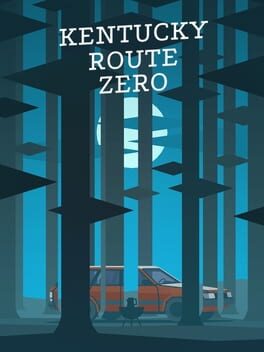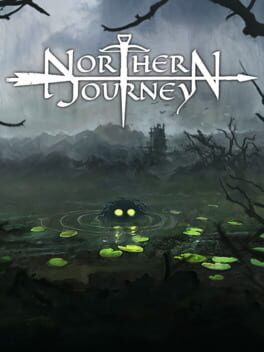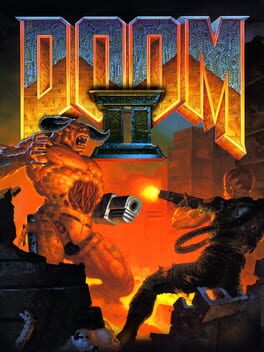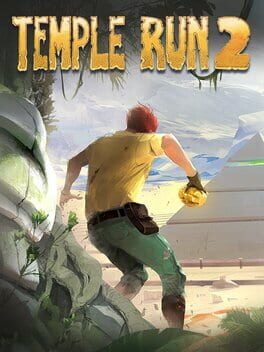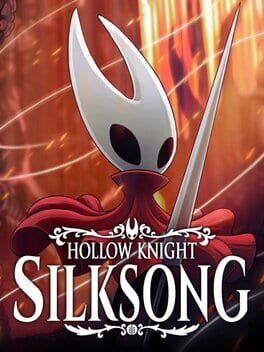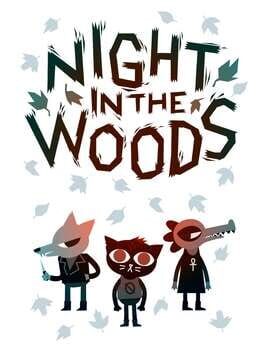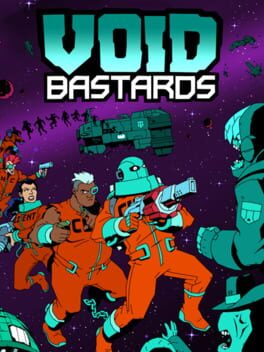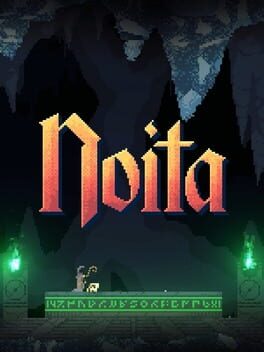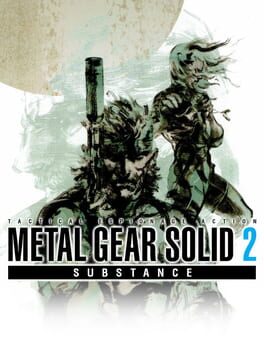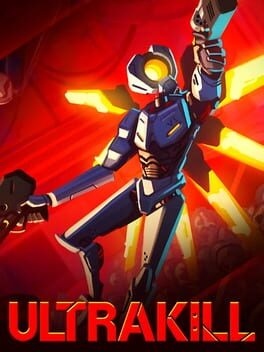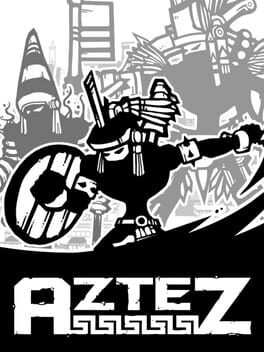Salvale
2017
There’s little I can really say about Rain World without trespassing on somebody's definition of spoilers. Having something explained to you outright is obviously less engaging than experiencing it yourself, this is one of the biggest reasons games are so loved to begin with. But one of the things that makes Rain World so difficult to review is its near-absolute commitment to this idea. This doesn't seem like a contentious thing on the surface - "show don't tell" after all. But Rain World's strict difficulty and hesitancy to explain itself makes for an environment that seems apathetic as to whether or not the player learns all of its systems. To some that may sound like a welcome challenge and to others, a frustrating chore. And while the former is a good mindset to have, at the end of the day even those partial to the idea will almost certainly find themselves at their limits when it comes to the game’s obtuseness. Very little beyond the basic controls is explicitly laid out, and while there is some guidance given in the form of a little yellow overseer, his hints amount to abstract symbols and gestures that will still require much player interpretation. But even factoring that in, the onus is on you to discover the vast majority of the games systems with no guidance whatsoever. All this is to say, Rain World is a hard game but perhaps the hardest thing about it is getting into it to begin with.
It's impossible to lay out precisely the right mindset to enter the game with, but a step in the right direction would be to relinquish as many of your expectations as possible going in. That's a difficult and impenetrably vague thing to recommend but everything I've said up to this point can only do so much to communicate the experience of playing it. I'm sure most of you reading this can't remember this far back, but try to think of the sorts of games released in the 80s and even in the 90s. Though some classics stand out, a large chunk of games from the period would be considered unacceptable, obtuse, and bizarre if released in this day and age. This is partially because of technological limitations, but people tend to overstate the degree to which that's true. Pressing the X button in 1997 isn't any different from pressing it today, after all. No, the greatest difference between the design philosophies of then vs. now is rooted in the fact that, back then, there was less of a frame of reference for how a game should work. As time goes on, developers will stumble upon certain design decisions that tend to please the average consumer more. As they do this, other developers take note and start to implement these things in other games. The more this is done, the more ingrained certain expectations become in consumers. Whether or not this is a good thing is besides the point, if you’ve been paying attention you’ve probably figured out what I’m getting at here - that Rain World isn't bound by convention in the slightest. If it weren't for the rather robust physics system and detailed creature behaviors, the game, with its fundamental design philosophy intact, could easily have been released in the 90s and blended right in with its environment. As it is, nearly every critic I've seen hate on the game looks at the surface level choices that are simply contradictory to the gene pool of conventions that the game industry has evolved into. Many games hold it to be self-evident that mechanics should be taught in isolated, tutorialized environments so that the player can safely learn them. Many games hold it to be self-evident that lethal threats should be highly telegraphed beforehand to make for a consistent and fair experience, even the first time through. Many games hold it to be self-evident that the character's movement should be intuitive and respond as players expect, and that ideally the player won’t have most of their moveset outright hidden from them. I know many of you would scoff at the audacity of implying that denying these things could result in anything but a disaster. But think to yourself - just how much of that is based on your preconceived notions of what a game should do? Obviously if the game doesn't telegraph threats in a way players will understand at a glance, this leads to confusing, frustrating deaths until the player figures it out themselves. And if a game isn't thoroughly tutorialized, you'll go for some time without knowing what to do, and a similar thing could be said for the atypical movement. To those who have played the game and would criticize these things, I ask you this: can you really imagine a better version of the Rain World that does conform to your expectations? One where there are no creatures, but instead enemies, no environments but instead levels, and no fluid traversal but instead stiff movement? Whether you can appreciate it or not, the fact remains that the lengths Rain World goes to to preserve its artistic vision is absolutely integral to the experience. Never before have I lived through a more believable and dynamic world, nor have I felt each threat and relief with the same passion that the in-game character would. Essentially, the divide between player and character is as thin as I've ever seen it, you all but become a limp, pale, slug-creature starving for food, and your mindset adapts to view the world this way. And it's all thanks to the fact that the ecosystem is clearly not made for you. All of the animals have their own agendas, and the vast majority of the time you won't be fighting them, but running past or even hiding from them. They aren’t placed as obstacles or challenges to overcome, they are your equals and have the same goal as you - survival.
But if you find it hard to enjoy, do keep in mind that you're far from alone even among the most dedicated fans. It's hard to find someone out there who didn't have difficulty coming to appreciate the game. Any of its dedicated defenders, including myself, will tell you the same thing - that it takes many long breaks and even a couple restarts before you become hooked, but once you do, there's nothing else like it. The unshackling of one's expectations is a painful process in this case, but in the end, learning how to live and breathe as a foreign creature in an alien ecosystem is so enrapturing that no amount of my rambling can truly communicate it. In life, pain is essential to know true pleasure. In a similar vein, failure is essential to learn, and eventually to know success. At the end of the day, hating Rain World is an essential step to loving Rain World.
It's impossible to lay out precisely the right mindset to enter the game with, but a step in the right direction would be to relinquish as many of your expectations as possible going in. That's a difficult and impenetrably vague thing to recommend but everything I've said up to this point can only do so much to communicate the experience of playing it. I'm sure most of you reading this can't remember this far back, but try to think of the sorts of games released in the 80s and even in the 90s. Though some classics stand out, a large chunk of games from the period would be considered unacceptable, obtuse, and bizarre if released in this day and age. This is partially because of technological limitations, but people tend to overstate the degree to which that's true. Pressing the X button in 1997 isn't any different from pressing it today, after all. No, the greatest difference between the design philosophies of then vs. now is rooted in the fact that, back then, there was less of a frame of reference for how a game should work. As time goes on, developers will stumble upon certain design decisions that tend to please the average consumer more. As they do this, other developers take note and start to implement these things in other games. The more this is done, the more ingrained certain expectations become in consumers. Whether or not this is a good thing is besides the point, if you’ve been paying attention you’ve probably figured out what I’m getting at here - that Rain World isn't bound by convention in the slightest. If it weren't for the rather robust physics system and detailed creature behaviors, the game, with its fundamental design philosophy intact, could easily have been released in the 90s and blended right in with its environment. As it is, nearly every critic I've seen hate on the game looks at the surface level choices that are simply contradictory to the gene pool of conventions that the game industry has evolved into. Many games hold it to be self-evident that mechanics should be taught in isolated, tutorialized environments so that the player can safely learn them. Many games hold it to be self-evident that lethal threats should be highly telegraphed beforehand to make for a consistent and fair experience, even the first time through. Many games hold it to be self-evident that the character's movement should be intuitive and respond as players expect, and that ideally the player won’t have most of their moveset outright hidden from them. I know many of you would scoff at the audacity of implying that denying these things could result in anything but a disaster. But think to yourself - just how much of that is based on your preconceived notions of what a game should do? Obviously if the game doesn't telegraph threats in a way players will understand at a glance, this leads to confusing, frustrating deaths until the player figures it out themselves. And if a game isn't thoroughly tutorialized, you'll go for some time without knowing what to do, and a similar thing could be said for the atypical movement. To those who have played the game and would criticize these things, I ask you this: can you really imagine a better version of the Rain World that does conform to your expectations? One where there are no creatures, but instead enemies, no environments but instead levels, and no fluid traversal but instead stiff movement? Whether you can appreciate it or not, the fact remains that the lengths Rain World goes to to preserve its artistic vision is absolutely integral to the experience. Never before have I lived through a more believable and dynamic world, nor have I felt each threat and relief with the same passion that the in-game character would. Essentially, the divide between player and character is as thin as I've ever seen it, you all but become a limp, pale, slug-creature starving for food, and your mindset adapts to view the world this way. And it's all thanks to the fact that the ecosystem is clearly not made for you. All of the animals have their own agendas, and the vast majority of the time you won't be fighting them, but running past or even hiding from them. They aren’t placed as obstacles or challenges to overcome, they are your equals and have the same goal as you - survival.
But if you find it hard to enjoy, do keep in mind that you're far from alone even among the most dedicated fans. It's hard to find someone out there who didn't have difficulty coming to appreciate the game. Any of its dedicated defenders, including myself, will tell you the same thing - that it takes many long breaks and even a couple restarts before you become hooked, but once you do, there's nothing else like it. The unshackling of one's expectations is a painful process in this case, but in the end, learning how to live and breathe as a foreign creature in an alien ecosystem is so enrapturing that no amount of my rambling can truly communicate it. In life, pain is essential to know true pleasure. In a similar vein, failure is essential to learn, and eventually to know success. At the end of the day, hating Rain World is an essential step to loving Rain World.
2013
2021
2019
Slightly prefer to the original - I don't have any problems with the OG's level design, but I never quite appreciated it as much as many people seem to. The more wacky, sometimes gimmicky levels of Doom II, while obviously less tight (and occasionally just... not good), always had me at least excited to see what would come up next. Many new enemies seem redundant on paper, but the sheer added variety (and chads like archvile) are worth it to me. Doom was satisfying but I can't honestly say I'd play it for mechanics alone. This is the sort of game where novelty is worth it, and it's often enough done well - or at least inoffensively, with some obvious exceptions
2013
2017
Deeply endearing with likable and very well-done characters, and delves into several poignant topics. It's unfortunate then how many of those themes simply go nowhere and how unsatisfying the conclusion of the "main plot" is due to the bizarre pacing. I can't tell you how shaken I was thinking "wow, what a great rising action, can't wait to see where this goes," Only for the title card for the epilogue to show up.
2019
I love the concept of the game and it can be rather satisfying at points, but areas are disappointingly samey (aside from highly contextual gimmicks) and the basic gameplay is just that, basic, to the point where it kills my drive to go on very often. These factors make starting a new run after death a miserable endeavor instead of the new beginning that it is in many other roguelikes.
What I've said so far probably sounds much more negative than my rating does, but I must emphasize how wonderfully novel the concept is and how engrossing it can be when your resources are running dry and you make a clutch, last moment escape. There's a huge amount of untapped potential here, though having more in depth moment to moment gameplay would risk fracturing the game too hard in an Aztez-like situation, but at the very least more interesting level generation and more deliberately constructed level pieces could've gone a long way.
What I've said so far probably sounds much more negative than my rating does, but I must emphasize how wonderfully novel the concept is and how engrossing it can be when your resources are running dry and you make a clutch, last moment escape. There's a huge amount of untapped potential here, though having more in depth moment to moment gameplay would risk fracturing the game too hard in an Aztez-like situation, but at the very least more interesting level generation and more deliberately constructed level pieces could've gone a long way.
2020
2019
2017
Beaten it so thoroughly so many times that I don't even know what to say about it anymore. Some of the best world design probably ever with a perfectly well balanced core moveset that leads to many excellent areas, platforming, combat, anything. Really just lays down the fundamentals as tightly as possible and runs with it, exploring every little corner of every little idea it has. Wonderful.
2020
2017
The "campaign" is a true case of mustard-on-ice cream, but the arena mode is very solid and is really all that'll ever come to mind when I think about this game. For all intents and purposes, the arena is the main game or at least can be treated as such, and it's hard not to think of it that way with a combat system as rich as this one. The real killer for the system tho is how absurdly easy it is to rack up an infinite airborne combo that no enemy can knock you out of. This complaint is bigger than it sounds for people who aren't really into character action, and smaller than it sounds for people who are. On the one hand, it allows for basically any enemy to be effortlessly killed once you have them launched to a reasonable height (barring some that can break free), and it renders point/combo challenges essentially meaningless as the last enemy in an engagement can be infinitely juggled midair for the aforementioned points or combo score. On the other hand, the challenges are essentially meaningless outside of the board game mode, and there are a good few enemies that can break your midair combo, that is until you get out of their vertical range, at which point it can already have been called a reasonably interesting challenge. On the other other hand (that I keep in my back pocket in case of emergencies), this is super dependent on the engagement, and a good deal of encounters don't have such enemies. Outside of that, the gameplay is extremely solid, with a wonderful selection of ground and air moves that are satisfying and intuitive to master and chain together. Weapons are mostly balanced and distinct, some are arguably more satisfying than others but the fact remains that they, as all the best weapons do, bounce and combo off one another in interesting and varied ways. The enemy design is extremely tight as well, though some enemy variants look unfortunately similar in silhouette. A bit of a shame, as each enemy does have a defined and important role in a combat engagement which itself is great, though it would've been greater if you could more easily tell them apart. Regardless, certain enemies demand certain attack or evasion strategies, some force you off the ground, some force you out of the air, some should probably be parried and, well, yes good they're good I think I've made my point. Overall, if this game doubled down on the action bits and had a defined action campaign - rather than a bizarre rouguelite board game campaign - it could've been excellent, and it almost pains me a bit to say that it isn't. But at the same time I'm reasonably happy with what we got.

